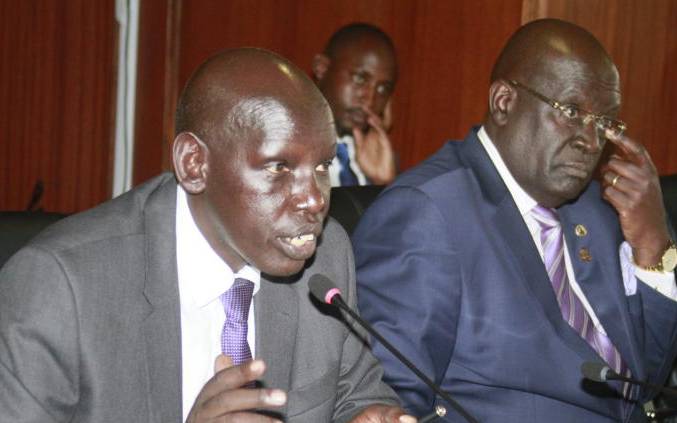
Education CS. George Magoha(R) and his PS. Belio Kipsang when they appeared before the National Assembly Education Committee over a petition on funding co-curriculum activities in schools at Parliament on Thursday, July 27, 2019. [Boniface Okendo,Standard]
Globally, the basic education level is perceived to be the foundation of the development of any nation and the only premise of progress in every family and society. This is due to the fact that the growth of any country socially and economically, is largely connected with pupils’ academic performance at this level.